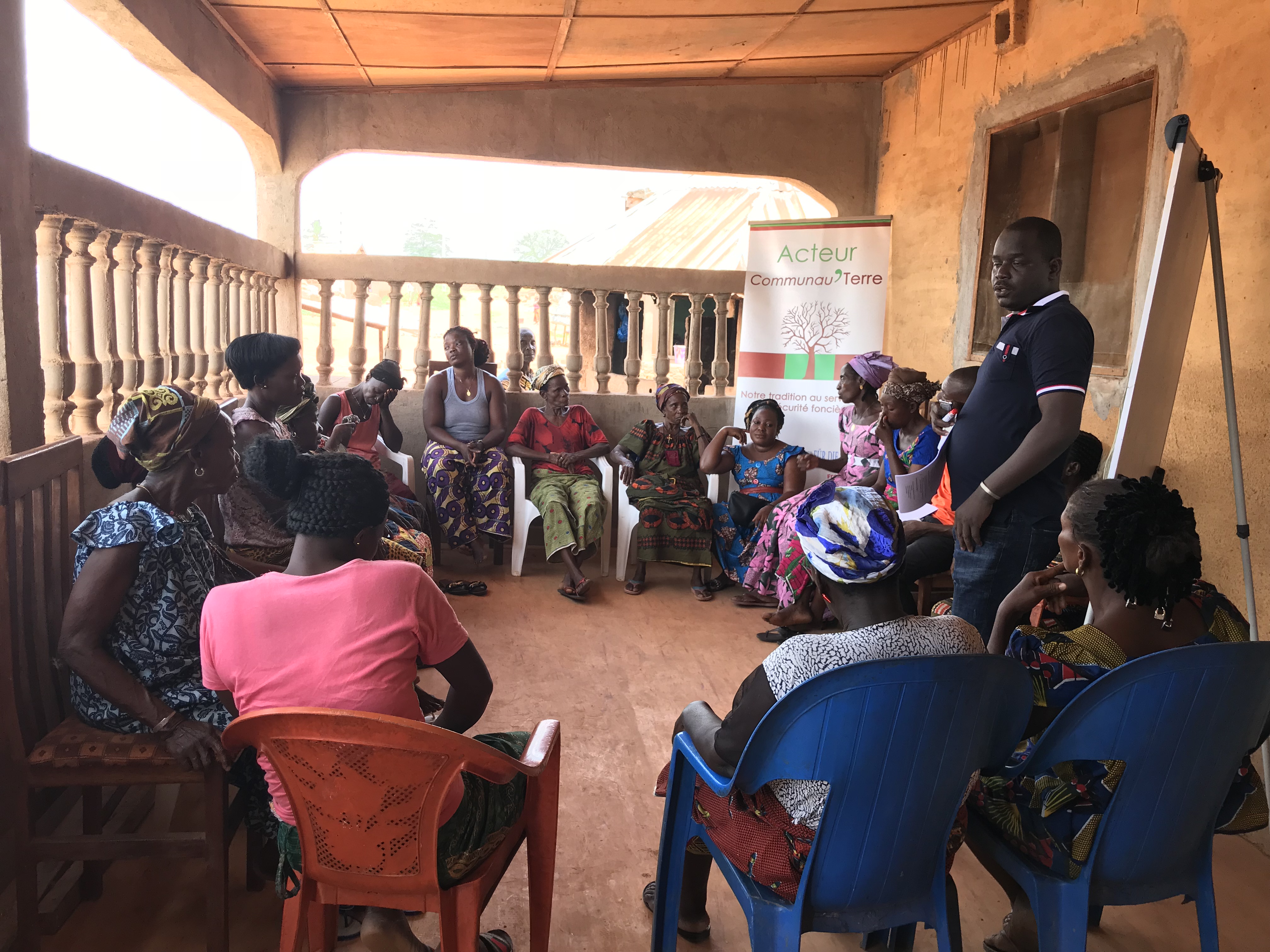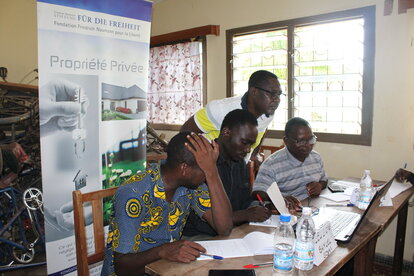Business & Human Rights
Empowerment in Côte d’Ivoire’s cocoa belt – land rights for Ivorian farmers

FNF helping to secure property and land rights for Côte d’Ivoire’s rural population.
© Friedrich-Naumann-Stiftung für die FreiheitThe Foundation also promotes secure property and land rights for the rural population of Côte d’Ivoire.Throughout the world, the agricultural sector, which produces a large part of the world’s economic output, is rife with human rights abuses, such as exploitation and child labour. The most common reasons for such abuses are unsettled property and land rights.
Since 2016, we have been working with the liberal think tank Audace Institut Afrique as part of thespecial initiative “A World without Hunger”, set up by the German Ministry of Economic Cooperation and Development. In this context, we are developing and implementing a new system to recognise land rights. The system is based on a multicultural and interdisciplinary study spanning two years and relies on traditional village committees which we help to set up and expand. The purpose
of the committees is to create local recognition for land rights and to act as “registry authorities”. We started with village committees in five pilot villages in two communities (Guiglo and Sinfra) in the so-called “cocoa belt” of Côte d’Ivoire. Our partners are currently testing the model in other regions, including the community of Man.

FNF helping to secure property and land rights for Côte d’Ivoire’s rural population.
© Friedrich-Naumann-Stiftung für die FreiheitInge Herbert, the Foundation’s project manager for West Africa, says that “The project works closely with local authorities as well as traditional leaders and kings, using computers and GPS technology. Over the past two years, we have created multi-layered maps of the project villages that reflect possession and ownership. We keep
these maps both in physical and digital form. They serve as a legal basis in a country that does not yet have a nationwide land registry.”
“The villagers are now able to measure land and train neighbouring villages to do the same, thanks to ‘Train the Trainer’ elements in the project framework,” Inge Herbert adds. She emphasises that contract templates are being developed for the villagers. These put formerly verbal contracts, such as sales, leases or mortgages, in writing.
New financing models are also on offer. They allow occupants of land to raise money for investments, even if they only use the land, rather than owning it.